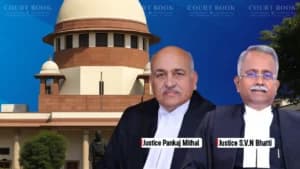The Supreme Court of India has issued a notice announcing that more than a hundred chamber matters are likely to be taken up between September 8 and 12, 2025. Advocates have been asked to keep their files and submissions ready, as the listing could happen on short notice.
Background
Chamber matters usually involve procedural hearings—like transfer petitions, special leave petitions (SLPs), and connected appeals—before they move to a larger bench for final adjudication. While they are often seen as preliminary, many such matters carry serious implications for property rights, corporate interests, and long-pending family feuds.
Read also:- Patna High Court Restores Pension Rights of Retired Teacher, Quashes Education Department Order
The notice, signed by the Assistant Registrar, made it clear that the court intends to expedite pendency. “Parties must be prepared as cases may be taken up for hearing at short notice,” the bench observed, emphasizing that no adjournments will be entertained casually. This instruction has sent lawyers rushing to align their paperwork, especially since the list spans sensitive disputes from across the country.
Among the highlighted cases are:
- Karuppiah Ambalam v. Rukmani, a decades-old inheritance tussle.
- Appeals involving the Maharashtra Electricity Regulatory Commission against Tata Power and Reliance Infrastructure.
- The State of Goa v. K.M. Ramdasan, concerning land and compensation claims.
- Multiple transfer petitions linked to marital disputes, including Jaya Priyadarshini v. Abhishek Kumar Singh.
- Corporate disputes like Commissioner of Customs (Mumbai) v. Vijeta International.
Read also:- J&K High Court Quashes FIR Against 85-Year-Old Father, Calls Allegations Absurd and Malicious, Civil Dispute
Senior advocates note that such a clustered listing indicates the registry’s push to unclog pending chamber work before the festival season.
Decision
By issuing this advance list, the Supreme Court has formally placed lawyers on alert. The court has not delivered verdicts in these matters yet but has clearly conveyed that hearings may be slotted without much warning. The final outcomes will depend on how many matters actually get called during the five working days.















